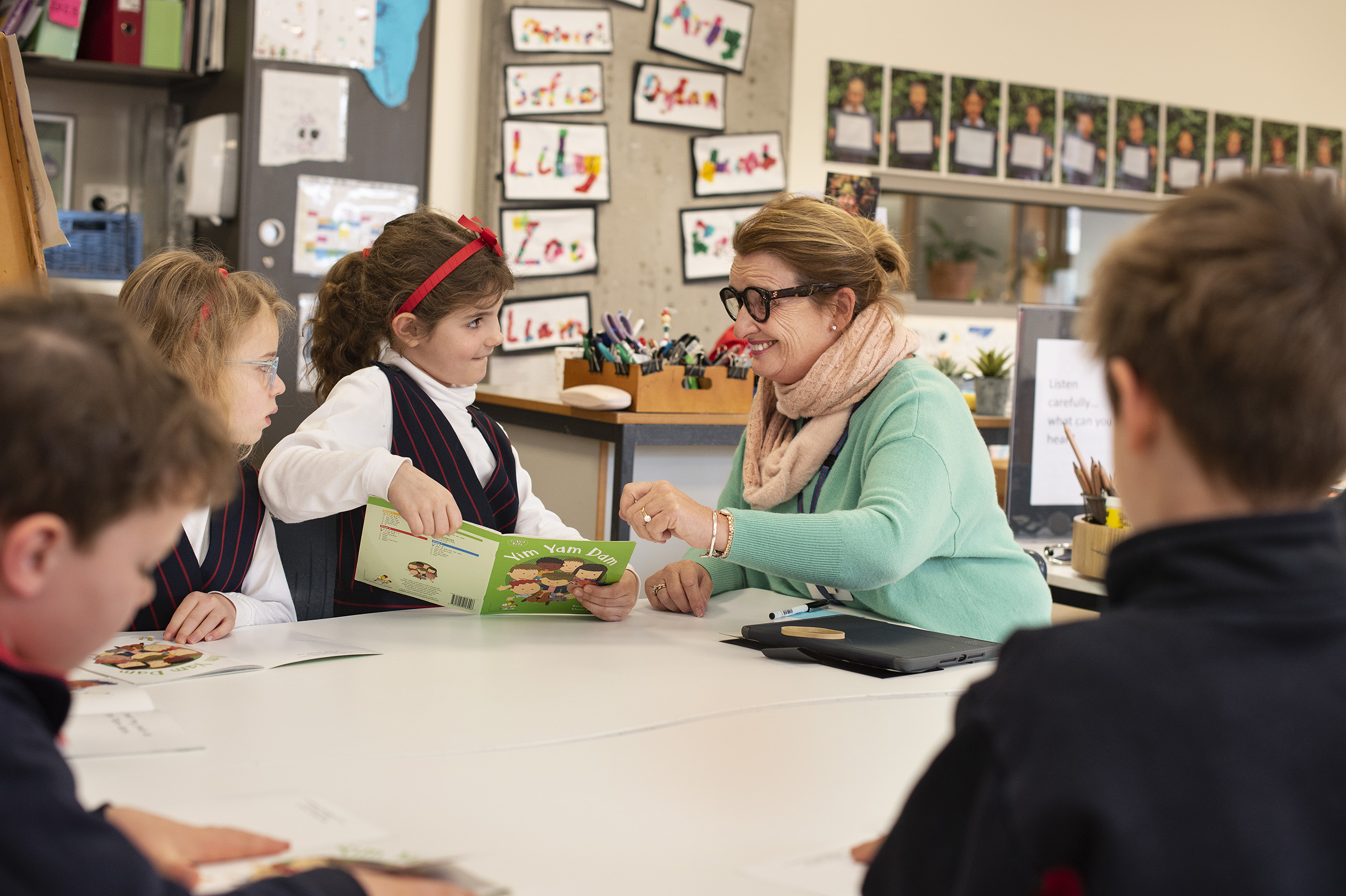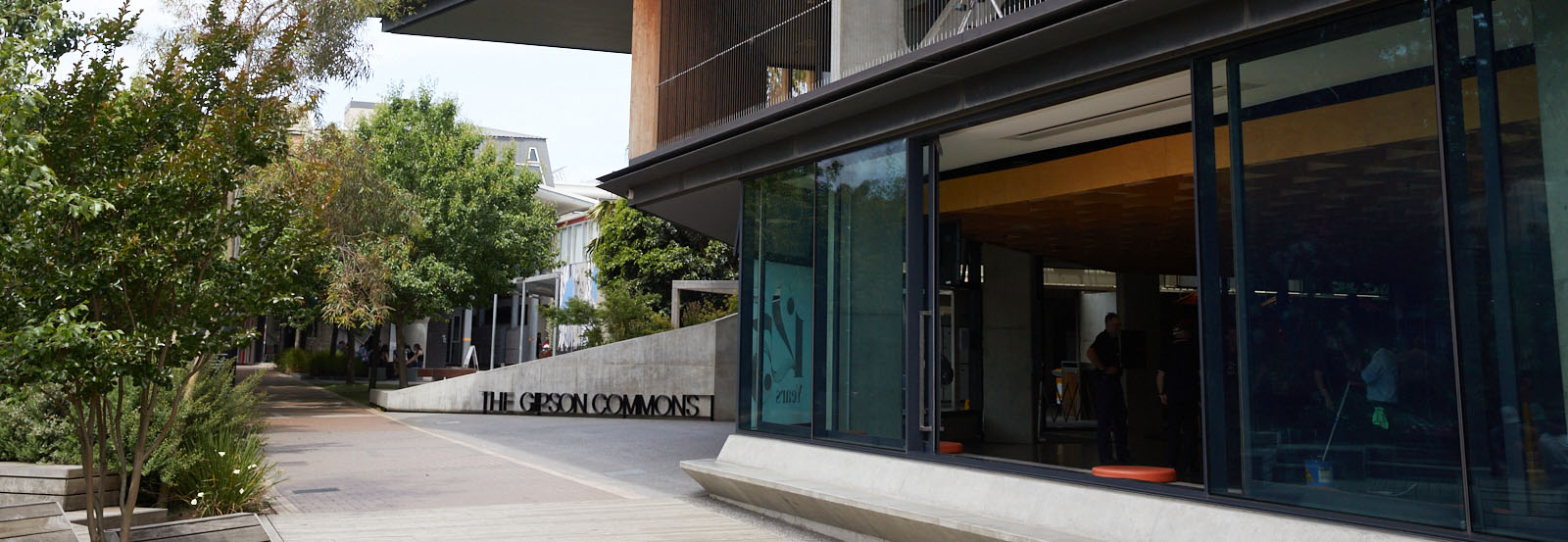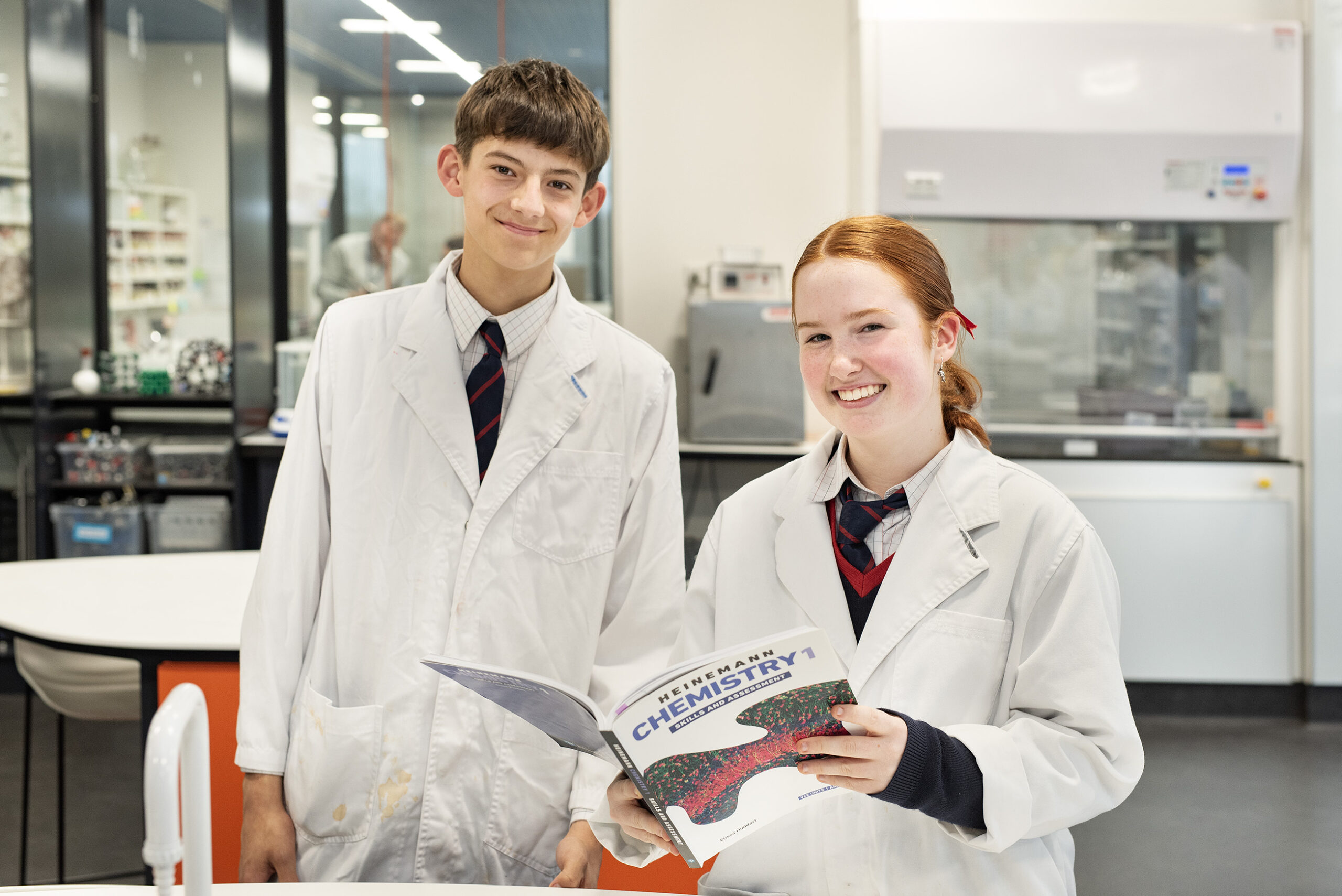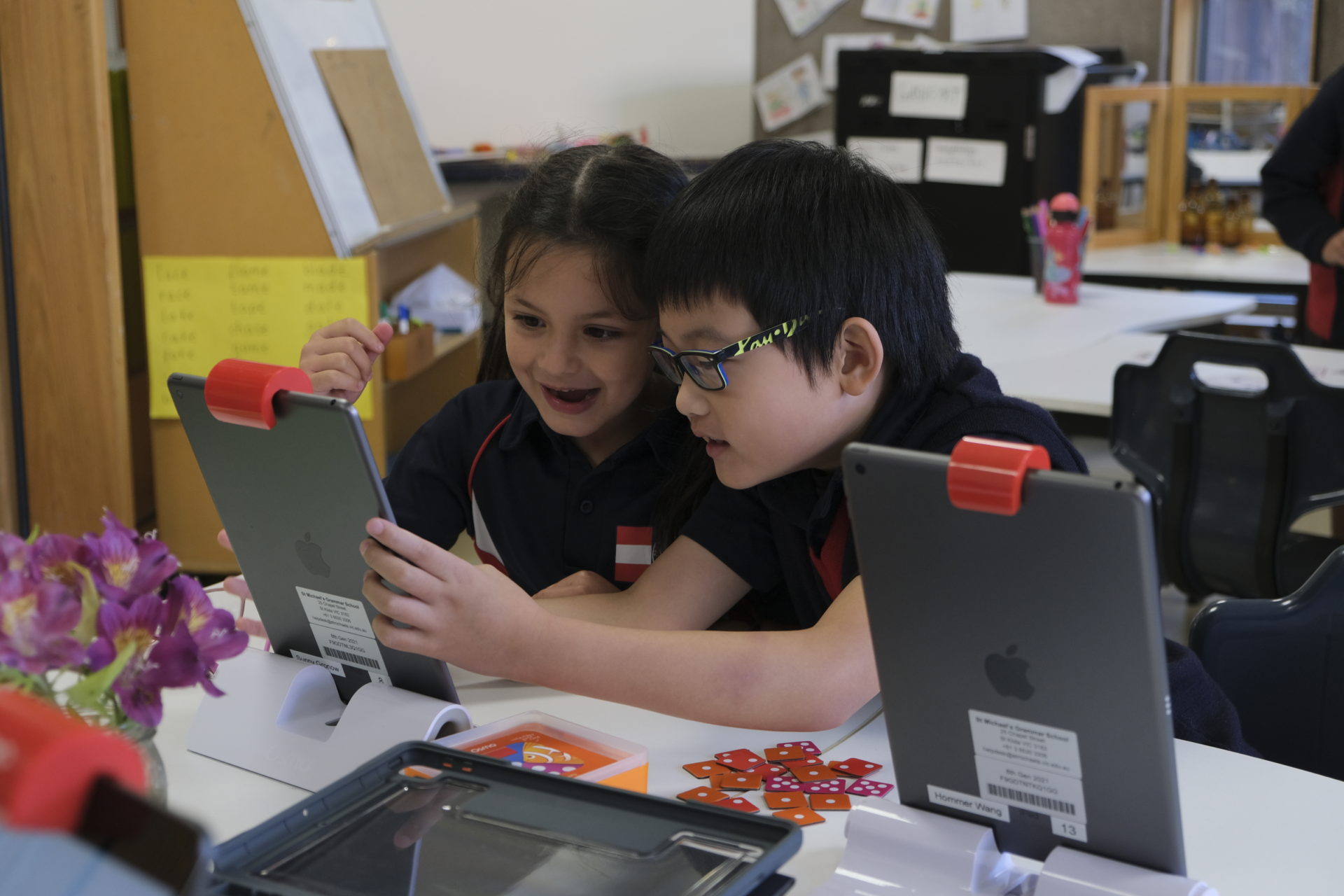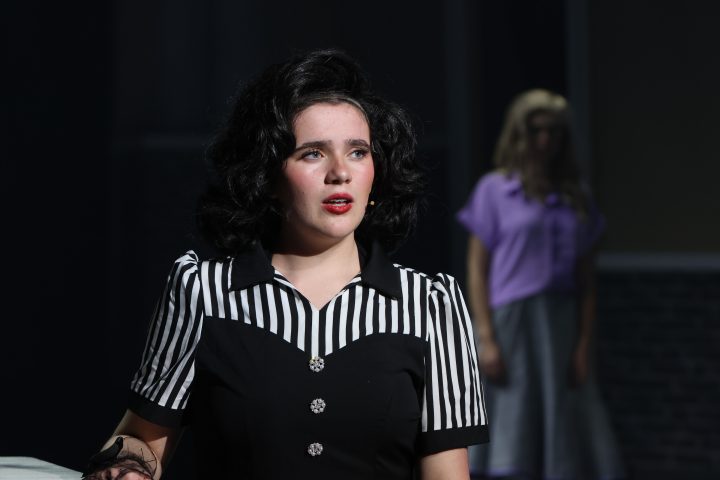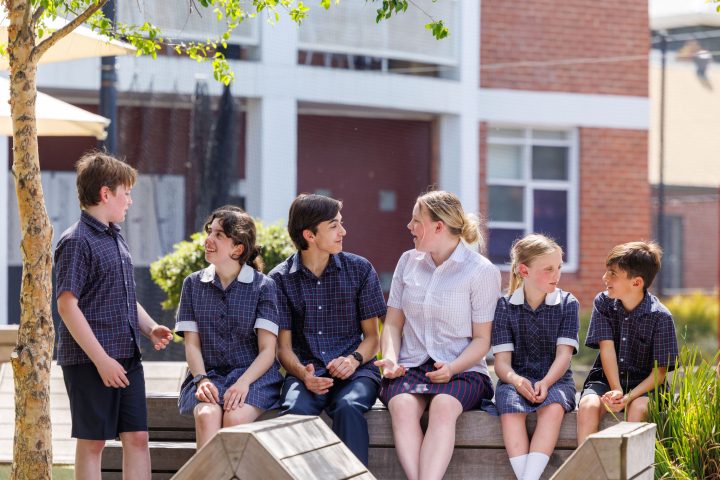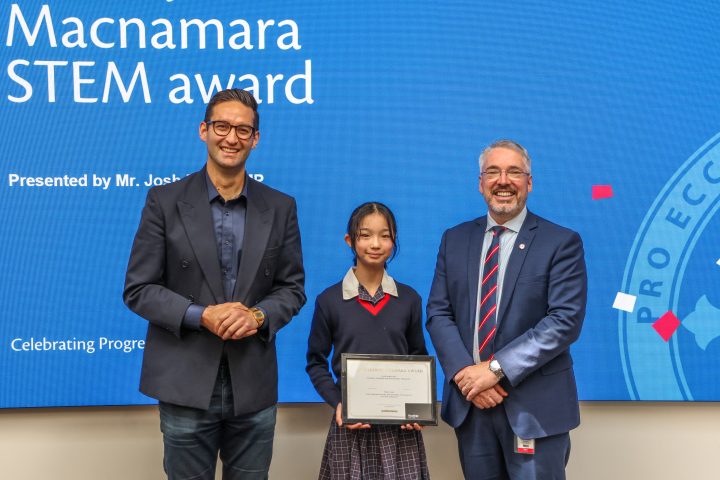At St Michael’s, our teachers start developing students’ Numeracy skills from the very beginning of their learning journey. Even our youngest learners in Margaret Thomas House are engaged in experiences that develop their mathematical thinking skills such as building, counting, puzzles, songs and games.
“I like maths because I like counting and putting numbers in order.” – Lulu (Prep)
Developing early Numeracy skills gives children an important foundation for their learning and growth. It helps prepare our students for daily life, including general problem solving, financial literacy, career readiness, and everything from driving, to travelling, understanding sports and games, and even cooking.
Maths is important because I use it in my home. If I didn’t know numbers, I wouldn’t know what time it is on the clock, then we might do everything at the wrong time.Henry (Prep student)
-
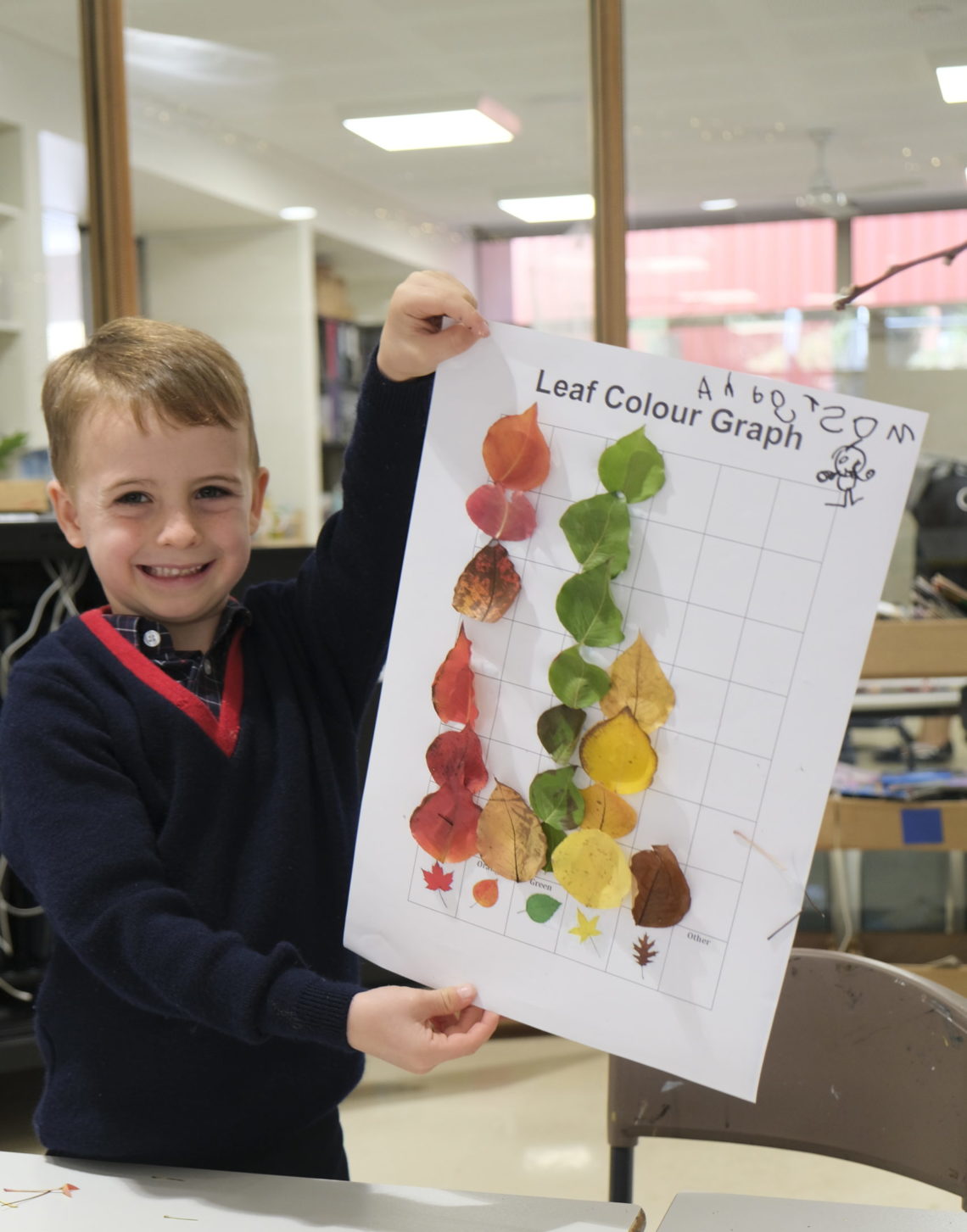 Archer's leaf colour graph
Archer's leaf colour graph -
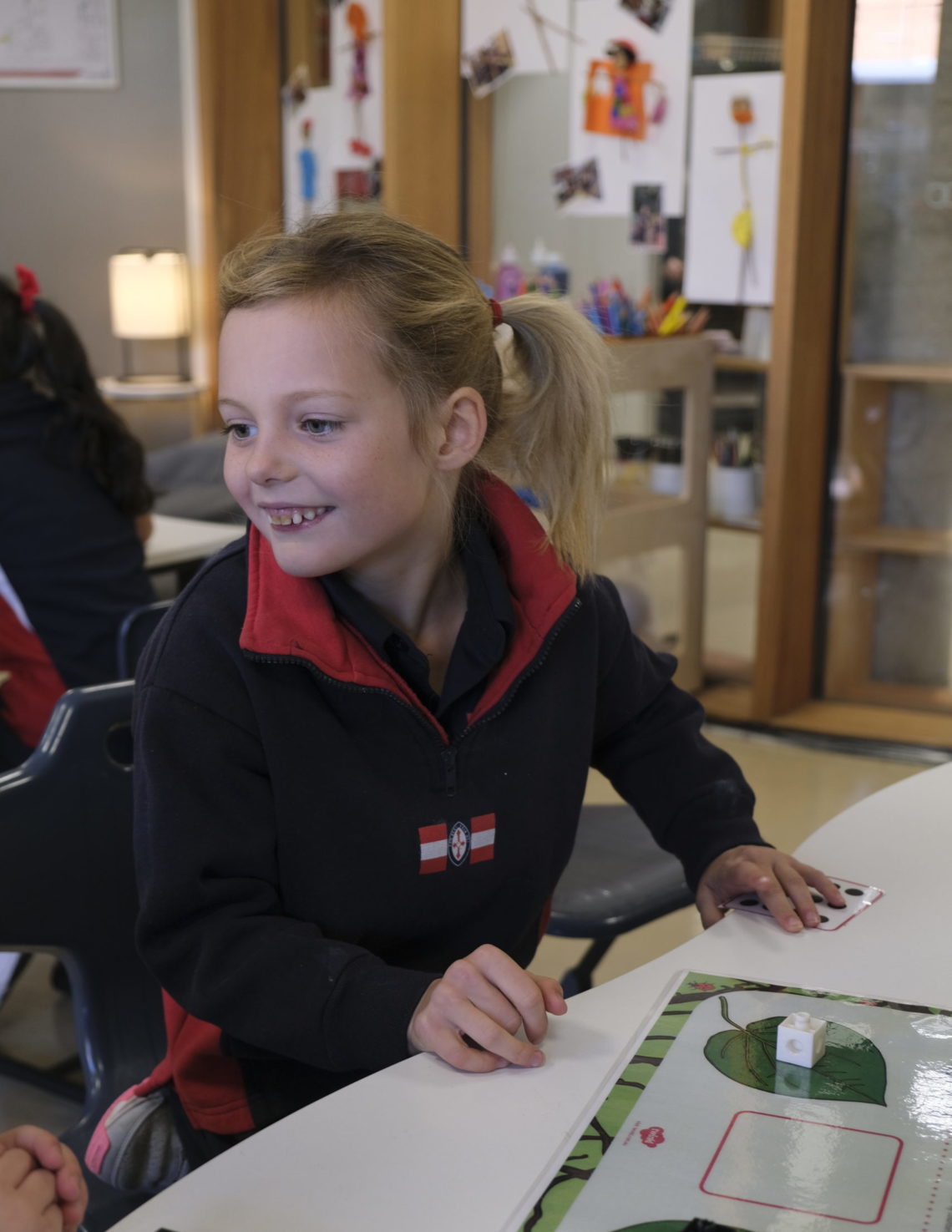 Charlotte (Year 1) enjoying a maths game
Charlotte (Year 1) enjoying a maths game
“I think it’s important because you need to learn to count. If you’re baking a cake you need to know how many eggs you will need. You couldn’t go to the shops because you wouldn’t know how to buy things or how much thing you needed.” – Lulu
Students learn the concepts and skills identified for each year level in the Victorian curriculum across three major areas: Number and Algebra, Measurement and Geometry, and Statistics and Probability.
However, at St Michael’s, we understand that it is not enough to simply learn the content of these areas in isolation. Students must also develop the skills to apply that knowledge in different circumstances to solve unknown problems, and to make connections across each area. Our teachers also discuss with the children that mathematical understanding is developed through a mindset of believing that there is no such thing as a ‘maths person’, and that mistakes, struggle and challenge are critical for brain growth. It is important that children realise they can all achieve success, with the right support and strategies.
Within our Inquiry Learning approach, the four major proficiencies that teachers develop within our students are Understanding, Fluency, Problem Solving and Reasoning.
As teachers, we want our students not only to know and understand the skill, but have the ability to flexibly apply it, both inside and outside of the classroom.Ms Renee Timion, Prep Teacher and Mathematics Learning Leader (K-6)
-
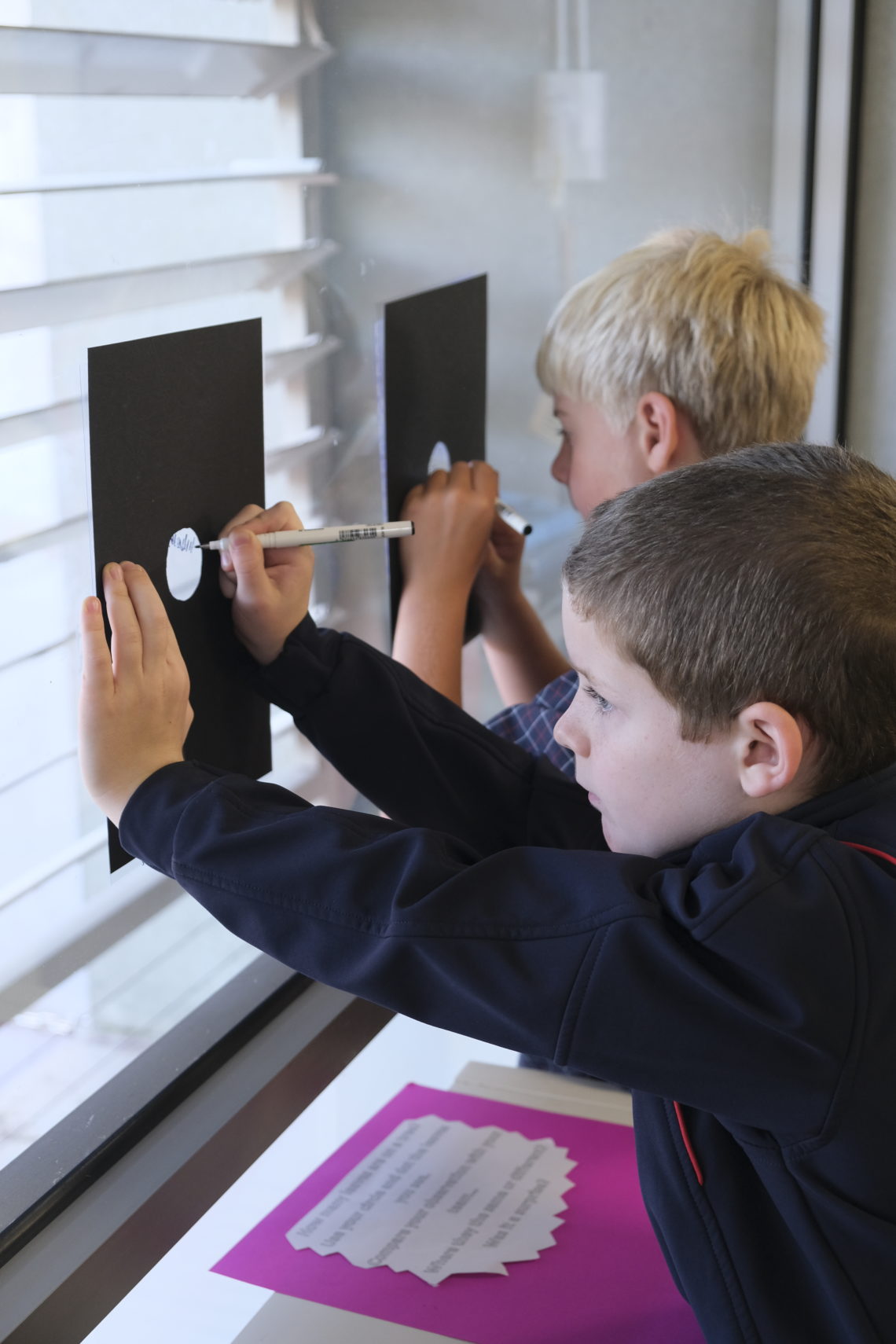 Estimating the number of leaves on a tree outside the classroom
Estimating the number of leaves on a tree outside the classroom -
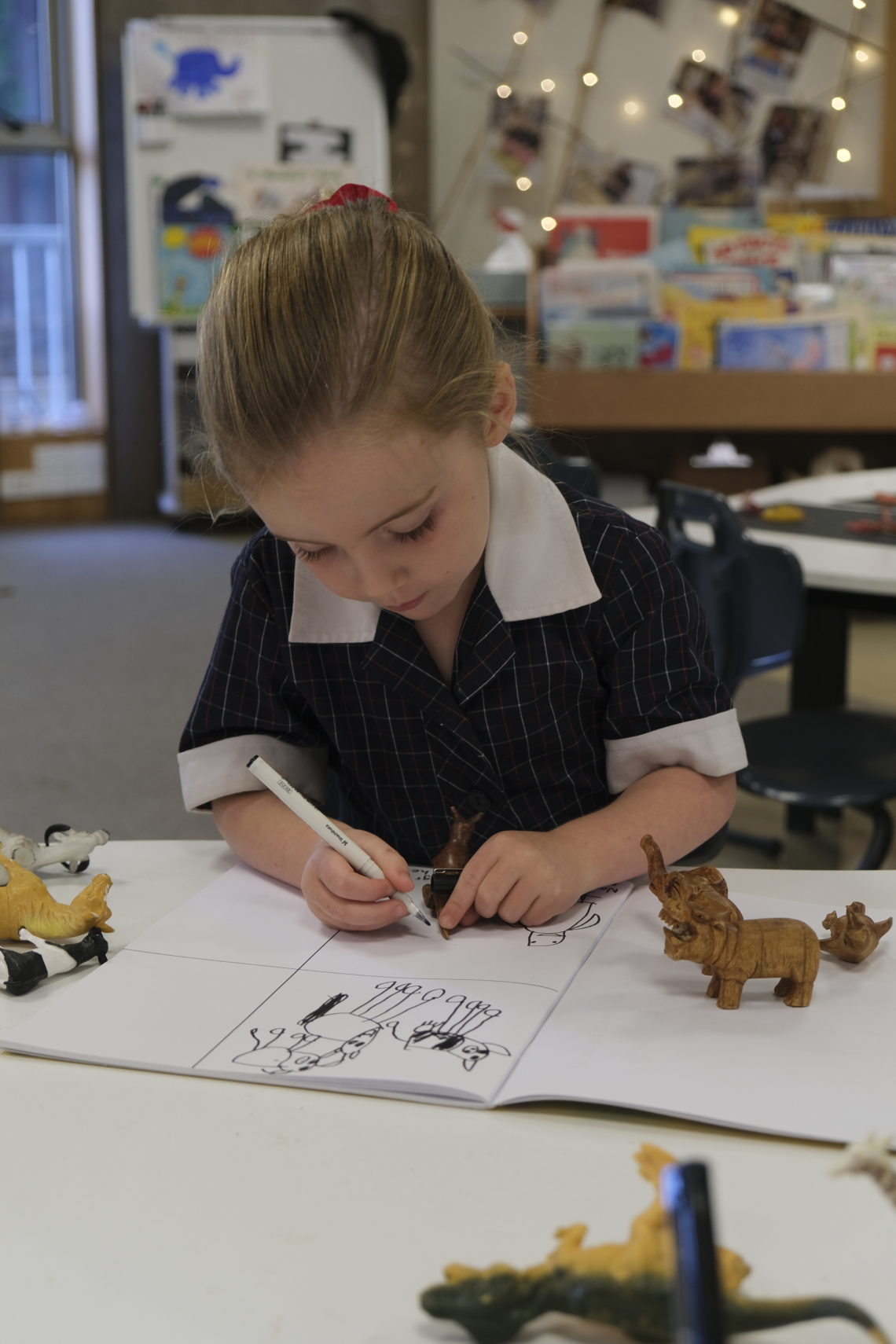 Lulu sorting groups of animals by the number of legs
Lulu sorting groups of animals by the number of legs
Children learn more easily when they can connect mathematical concepts and procedures to their own experiences. Students are encouraged to explore how deeper mathematical knowledge assists them in their daily lives. Students find that the more they look, the more they see mathematics all around them – in the classroom, the playground, at the shops, in the car and at home.
Prep students Valentino and Ando understand that numeracy is important even when doing something as simple as watching television. “If you can’t read numbers and you’re watching TV you might have the sound too loud, and it might break your ears,” Valentino said. “If you press the number 70 for the footy, you might get the footy when you are trying to watch the news,” Ando added.
Maths includes noticing numbers, shapes and patterns, as well as size, time and measurement. By using common household objects such as measuring cups, bathroom scales or a deck of cards, and by observing everyday events such as weather trends or a building site, students can more easily visualise the ideas that are being taught in the classroom.
On Monday 15 March, the day after International Day of Mathematics, many students across the Junior School celebrated the joy in maths. Students participated in a day of activities which applied their maths skills to real-world examples. In Prep, this included estimating the number of leaves on a tree, fairly distributing petals across a number of flowers, and investigating the area of different shapes using blocks and leaves.
At St Michael’s, we connect mathematical understandings and skills to real-world experiences, to promote independent thinking and problem solving.Ms Renee Timion, Prep Teacher and Mathematics Learning Leader (K-6)
-
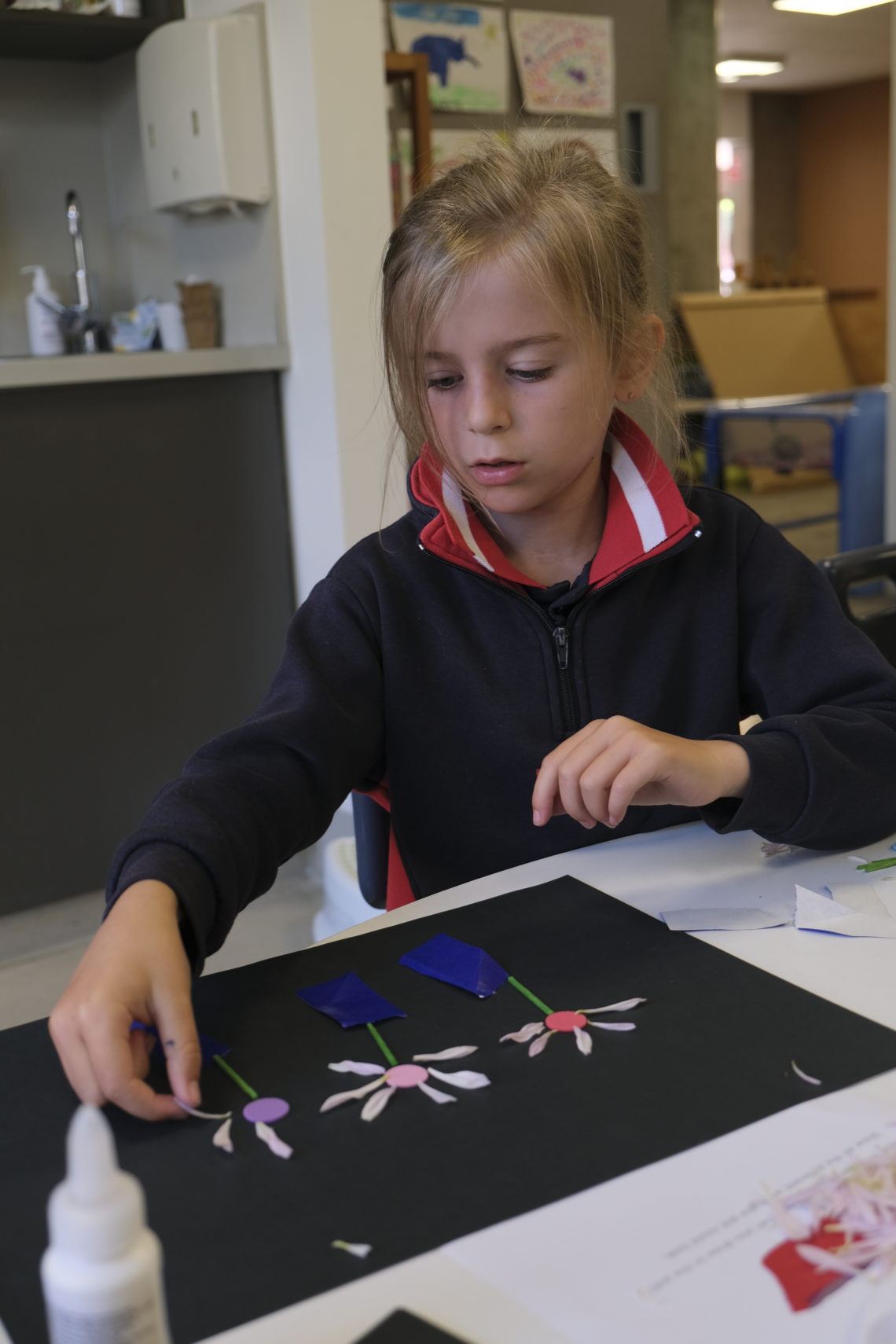 Ines (Year 1) distributing a number of petals across three flowers
Ines (Year 1) distributing a number of petals across three flowers -
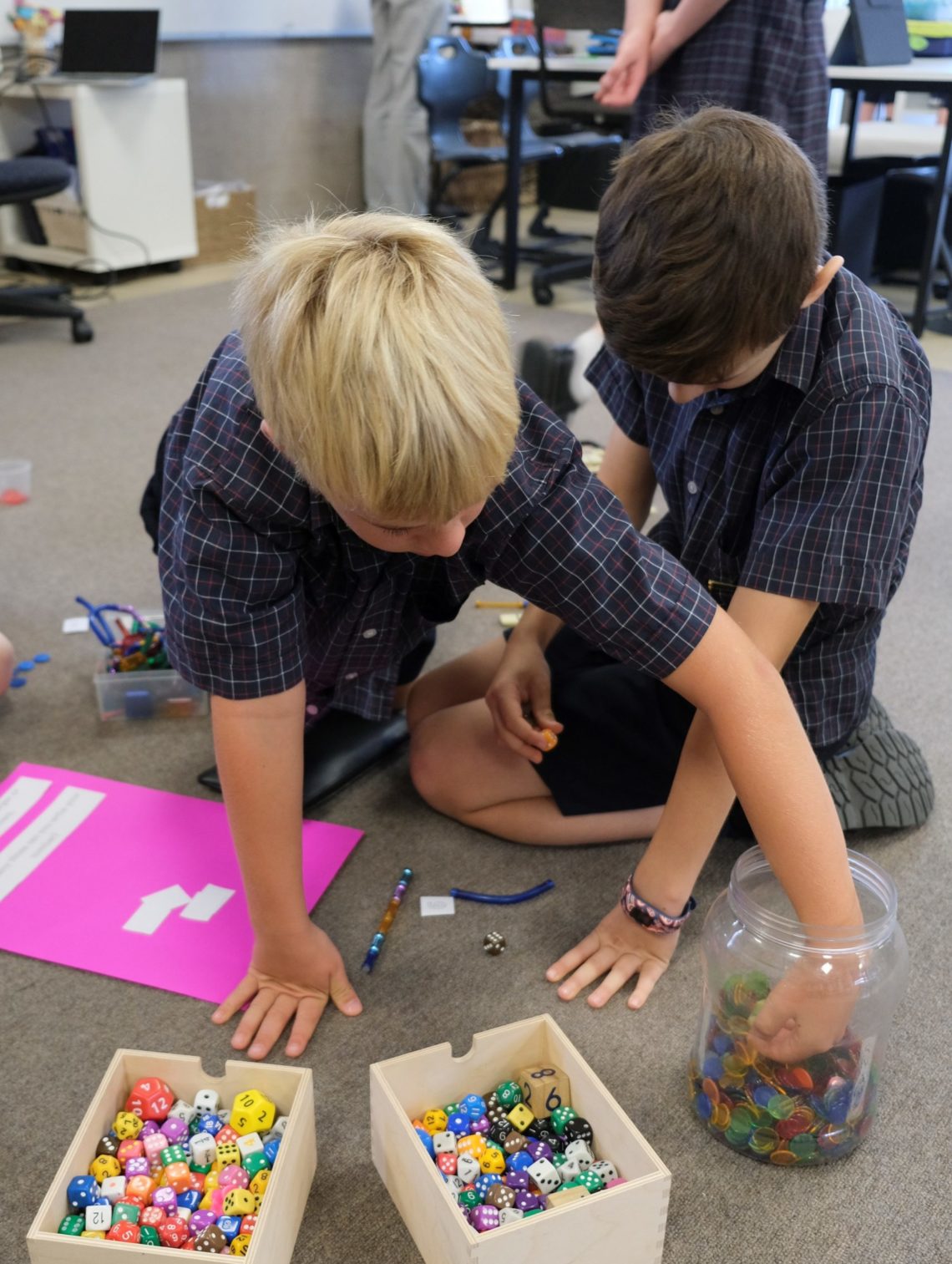 Year 3 students on International Day of Mathematics
Year 3 students on International Day of Mathematics
For a child commencing their learning journey at St Michael’s, Mathematics is so much more than a series of rote learnt rules and procedures to follow. Mathematics is a set of big ideas, where connections are explored, and relationships are established, so that the methods and rules help us to make sense of the world.
“We must make mathematics a subject that has relevance and meaning throughout schooling. We lose children in formulas and rules, and we make the subject sterile. We need to ensure the experiences we create for children allow for different entry points, different learning styles and different ways of solving problems. We must also stress from the youngest of ages that there is no such thing as a person who cannot ‘do’ mathematics.” – Nicole Armatas, Associate Head (K-6)
